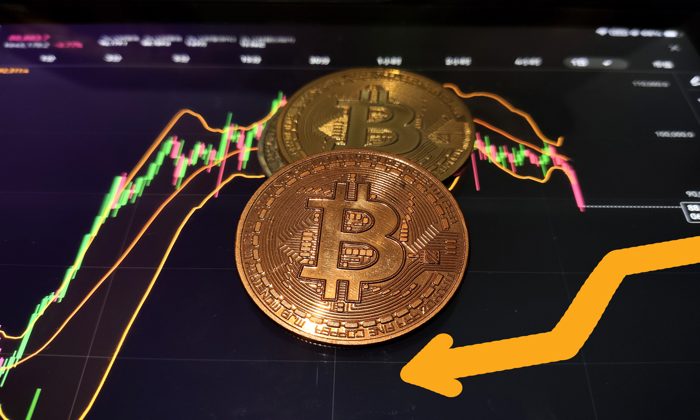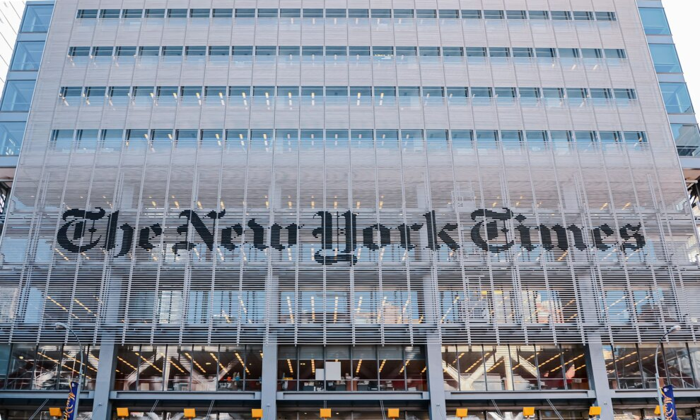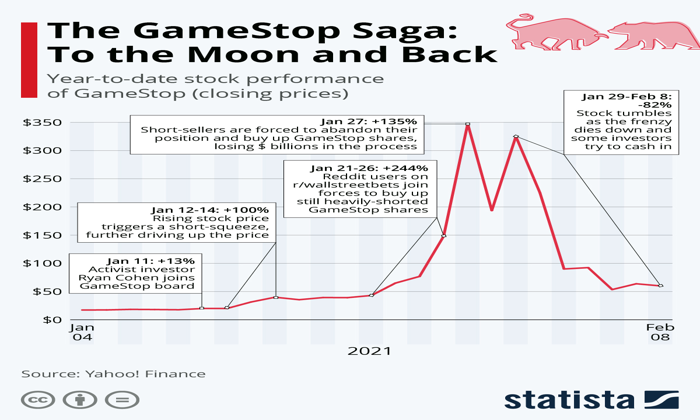The looming possibility of Trump firing Fed Chair Jerome Powell could signal a seismic shift not just in U.S. monetary policy, but also in the broader landscape of the US economy and the crypto market. President Donald Trump has been vocal about his dissatisfaction with Powell’s handling of interest rates, and his threats to dismiss the Fed chair have ignited discussions about potential repercussions. Analysts suggest that such a drastic action could destabilize traditional financial assets, including bonds and the dollar, while simultaneously enhancing Bitcoin’s appeal as an alternative investment. A significant loss of faith in the Federal Reserve’s stability could drive investors towards cryptocurrencies like Bitcoin, emphasizing their role as stores of value independent of government manipulation. This turbulent scenario raises essential questions about the future of fiscal policy and its direct impact on markets, including the increasingly influential digital currency sectors.
The implications of President Trump’s potential decision to dismiss the chair of the Federal Reserve raise profound questions about the future of U.S. economic policy and its influence on both traditional assets and emerging currencies like Bitcoin. As discussions intensify around Trump’s dissatisfaction with Jerome Powell and the direction of monetary policy, observers are keenly aware of how this could reshape investor sentiment. The possible firing of Powell not only risks upheaval within established financial institutions but also could catalyze a pivot towards decentralized digital assets. Market analysts are contemplating how this action might bolster Bitcoin’s status as a safe haven amidst political and economic instability, setting a precedent that highlights the fragility of confidence in central banking systems. Understanding these dynamics is pivotal, as the intersection of federal policy and market responses could redefine the landscape for investors in both conventional and crypto assets.
Trump Firing Fed Chair: A Game-Changer for Bitcoin?
The prospect of President Trump firing Federal Reserve Chair Jerome Powell introduces a radical shift in the landscape of U.S. monetary policy. The implications of such an unprecedented action could ripple across financial markets, creating instability not only in equities and bonds but also in the crypto market. Analysts caution that a move of this magnitude would undermine trust in U.S. financial institutions, leading to a potential flight of investors towards alternative assets such as Bitcoin. This scenario posits Bitcoin as a more reliable store of value as traditional assets falter in the face of political turmoil.
Moreover, the intersection of Trump’s actions and Bitcoin’s appeal is particularly salient in today’s economic environment. With concerns about inflation and diminishing confidence in the U.S. dollar, Bitcoin’s decentralized nature may draw in a new wave of investors seeking protection from federal meddling in monetary policy. As more Americans consider Bitcoin not just as a speculative investment but a hedge against possible economic instability, the cryptocurrency’s valuation could soar, especially if Powell’s firing catalyzes panic in traditional markets.
Impacts on Traditional Finance Following Powell’s Potential Firing
Should President Trump successfully remove Jerome Powell from his position as Fed Chair, the immediate aftermath might see traditional finance markets reeling. Such a significant disruption would likely erode confidence among investors accustomed to a predictable monetary policy, creating a cascade effect on stock prices and bond values. The fear of political instability tends to act as a trigger for market sell-offs, impacting not just the U.S. economy but also the global financial landscape. Financial experts warn that the resultant volatility may push many investors toward Bitcoin as a safer alternative.
This transition to Bitcoin could fundamentally alter perceptions about digital currencies within traditional investment portfolios. As defined by its finite supply and resistance to manipulation, Bitcoin represents an appealing contrast to the rapidly inflating dollar. Long-term investors may start to view Bitcoin less as an offbeat speculative play and more as a crucial component of financial sovereignty, especially in light of increased uncertainties about U.S. monetary governance.
The Political Landscape and Its Effects on the Crypto Market
The ever-changing political landscape under Trump’s administration has implications not only for the Federal Reserve but also for the broader crypto market. Speculations around Trump firing Powell have attached an air of unpredictability that could scare off traditional investors, thereby leading to temporary price drops across all cryptocurrencies, including Bitcoin. However, this initial panic could pave the way for more investment in Bitcoin as the dust settles, ultimately reinforcing its status as a form of ‘digital gold’.
As analysts have observed, crypto markets, particularly Bitcoin, are intertwined with traditional finance despite their divergent paths. Historical data suggests that during times of intense political conflict or economic uncertainty, Bitcoin tends to surge in value as investors look for assets that exist outside governmental control. Thus, while initial reactions to such political moves might include dips in Bitcoin prices, the long-term outlook suggests increased interest and investment in Bitcoin, confirming its role as a complementary asset to traditional portfolios amid political instability.
How Jerome Powell’s Leadership Influences Bitcoin Valuation
Jerome Powell’s leadership at the Federal Reserve has been a key factor influencing Bitcoin’s valuation and market behavior. His monetary policy decisions, particularly regarding interest rates, set the tone for economic conditions that ultimately impact Bitcoin’s growth. As Trump threatens to fire Powell, the uncertainty around Fed policy creates an unpredictable environment for Bitcoin investors. When interest rates are low, the appeal of Bitcoin as an alternative asset increases, as borrowing becomes cheaper and investors seek high-yield opportunities.
Furthermore, Powell’s reputation for ensuring economic stability through cautious monetary expansion contrasts sharply with the uncertainty surrounding Trump’s administration. If Trump were to remove Powell, it could send a signal that the Fed’s independence is under siege, triggering a loss of faith in the dollar and traditional banking systems. In turn, Bitcoin’s decentralized nature offers an alternative that is increasingly viewed as a safeguard against inflation and political interference, suggesting that any moves against Powell could ultimately bolster Bitcoin’s market position.
Future of Bitcoin Amidst Federal Reserve Challenges
The future of Bitcoin hinges significantly on the evolving relationship between the U.S. government and the Federal Reserve, particularly as tensions rise surrounding Trump’s leadership and his stance towards Powell. With growing concerns over economic stability and inflation, Bitcoin has emerged as a noteworthy contender for investors seeking refuge from political and economic uncertainties. Should Powell be dismissed, Bitcoin could see a surge in demand as both a hedge and an alternative currency, as investors increasingly view it as a safeguard against government intervention in the economy.
This potential shift could encourage mass adoption of Bitcoin, particularly among younger generations disillusioned with traditional financial systems. If a significant segment of the population begins to view Bitcoin as a viable alternative to fiat currencies, the cryptocurrency could enter a new phase of growth. With its immutable ledger and decentralized nature, Bitcoin could position itself as a critical financial asset amid the looming challenges posed by an unstable Federal Reserve.
Investor Sentiment towards the Fed and Bitcoin
Investor sentiment remains a powerful driver in the finance sector, particularly in relation to Bitcoin’s market performance. Concerns surrounding Jerome Powell’s future and Trump’s threats reflect broader apprehensions about the integrity of U.S. monetary policy. Should Powell be removed, the fear amongst investors could heighten, leading them to view Bitcoin as a more attractive investment relative to the U.S. dollar and traditional assets. The narrative surrounding Bitcoin as an escape from governmental control could gain momentum, propelling its demand during turbulent times.
Moreover, as public awareness around economic functionalities grows, retail and institutional investors alike might shift part of their portfolios into Bitcoin as a hedge against fiscal irresponsibility. The concept of Bitcoin as a non-sovereign store of value can resonate profoundly, especially in light of potential changes to the Fed’s leadership and the unpredictable behaviors of U.S. economic policies. Ultimately, the outcome of Trump firing Powell could help solidify Bitcoin’s image in the minds of investors seeking autonomy from governmental financial systems.
The Macro-Economic Landscape: Bitcoin’s Role
In a rapidly changing macro-economic landscape, Bitcoin’s role appears increasingly critical, particularly as the Federal Reserve navigates political pressures and monetary policies. Should Trump follow through on his threats to fire Jerome Powell, investors may retreat from traditional markets, searching for stability in alternative assets. Bitcoin’s fixed supply and independent nature present an enticing alternative to assets heavily influenced by Fed decisions. Such dynamics could encourage a paradigm shift in investment strategies.
Additionally, as tariffs and other government policy shifts shake the foundations of the market, Bitcoin’s resilient structure could appeal more to investors looking for security. The fixed supply of Bitcoin combined with its decentralized platform may well resonate as a bulwark against inflationary pressures and market volatility exacerbated by political interference. Thus, as uncertainty escalates around U.S. fiscal policy driven by changes in the Federal Reserve, Bitcoin may emerge as a cornerstone of financial resilience.
Analyzing Crypto Market Volatility Post-Powell Termination
The volatility of the cryptocurrency market, particularly Bitcoin, is often exacerbated by significant events in traditional finance. The potential firing of Jerome Powell could trigger short-term chaos across all markets, with Bitcoin initially reacting negatively before finding new footing. Investors might face initial panic selling as trust in financial institutions wanes, creating an opportunity for savvy investors to acquire Bitcoin at lower prices, anticipating its rebound as market conditions stabilize.
Over time, however, as the crypto market becomes more robust and intertwined with financial trends, Bitcoin’s ability to recover from any initial decline post-Powell termination could solidify its position as a reliable alternative asset. This cycle of volatility may ultimately attract a wider array of investors looking to hedge against economic mismanagement, marking Bitcoin as both a reactive and proactive financial asset in a chaotic environment.
Conclusion: Bitcoin as a Hedge Against Federal Instability
In conclusion, the looming threat of Trump firing Fed Chair Jerome Powell presents a complex nexus of opportunities and challenges for Bitcoin. The prospect of political instability could push traditional investors toward the crypto market in search of stability and independence from government manipulation. As Bitcoin continues to gain traction as a critical alternative asset, the evolving U.S. monetary policy landscape may redefine how financial assets are viewed in both short and long-term contexts.
Ultimately, the reaction of Bitcoin to the potential firing of Powell will serve as a litmus test for its role in alternative investments. If Bitcoin solidifies its standing as a hedge against federal instability, the cryptocurrency may not only retain its value but also experience significant growth as it capitalizes on a shifting market sentiment geared towards resistance to government control.
Frequently Asked Questions
What would the impact be if Trump fired Fed Chair Jerome Powell on the US economy?
If Trump were to fire Fed Chair Jerome Powell, it could destabilize the US economy significantly. Analysts suggest that such an unprecedented move would lead to a loss of confidence in American institutional stability, potentially causing traditional asset markets like bonds and equities to plummet, thereby increasing economic uncertainty.
How could firing Fed Chair Jerome Powell affect Bitcoin and the crypto market?
The firing of Jerome Powell could boost Bitcoin’s appeal as an alternative store of value amidst declining trust in traditional financial systems. Analysts believe that investors may flock to Bitcoin as a hedge against instability, likening it to a digital gold amidst turmoil in the US economy.
What precedent would Trump set by firing the Federal Reserve Chair?
By firing the Federal Reserve Chair, Trump would set a concerning precedent of executive interference in an independent agency. This action could undermine the long-standing separation between monetary policy and political influence, leading to greater uncertainty in the US economy and financial markets.
Could Trump’s move to fire Powell lead to changes in the crypto market?
Yes, if Trump fires Powell, it could create significant shifts in the crypto market. While Bitcoin may initially be affected by volatility in traditional assets, in the long run, it could benefit from increased demand as investors seek stable alternatives during economic upheaval.
How does Jerome Powell’s leadership relate to Bitcoin and the Federal Reserve’s policies?
Jerome Powell’s leadership at the Federal Reserve plays a crucial role in shaping monetary policy, including interest rates that directly influence the US economy. If Trump were to fire him, it could lead to uncertainty in these policies, ultimately impacting investor confidence in both the Federal Reserve’s decisions and the value of Bitcoin as an alternative investment.
What are the potential consequences of political turnover at the Federal Reserve for Bitcoin?
Political turnover at the Federal Reserve, such as the potential firing of Powell, may lead to decreased confidence in American economic institutions. In response, Bitcoin’s fixed supply and apolitical nature could become more attractive to investors concerned about traditional monetary policy manipulation.
How would the firing of Fed Chair Jerome Powell influence traditional financial markets?
Firing Fed Chair Jerome Powell could trigger a catastrophic drop in traditional financial markets due to a sudden loss of confidence in monetary stability. This turmoil might prompt investors to seek refuge in alternative assets like Bitcoin, further solidifying its role in the financial ecosystem.
What might be the short and long-term effects on Bitcoin if Trump fires Powell?
In the short-term, Bitcoin may experience severe price fluctuations alongside traditional markets due to panic selling. However, in the long-term, as confidence in the US economy declines, Bitcoin could reclaim its allure as a decentralized, stable asset, leading to potential price increases.
What are the views of analysts regarding Trump’s threats to fire Fed Chair?
Analysts express concern over Trump’s threats to fire Jerome Powell, suggesting that it’s a move that could diminish trust in the Federal Reserve, destabilize the US economy, and inadvertently increase Bitcoin’s attractiveness due to its independent nature.
Could firing Fed Chair Jerome Powell lead to a bullish trend for Bitcoin?
Yes, many analysts argue that should Trump fire Powell, it might lead to a bullish trend for Bitcoin as investors seek stable assets. The belief is that decreased confidence in traditional financial systems could push more investors toward Bitcoin as a viable alternative.
| Key Point | Details |
|---|---|
| Trump’s Threat to Fire Powell | President Trump has threatened to fire Federal Reserve Chair Jerome Powell, which could destabilize traditional finance. |
| Potential Market Impact | If Powell is fired, analysts predict a plunge in the value of traditional assets like bonds and the dollar. |
| Effects on Bitcoin | The firing could increase the attractiveness of Bitcoin as an alternative store of value amid instability. |
| Historical Context | Since 1951, no U.S. president has fired a Fed Chair. The precedent could damage trust in U.S. economic stability. |
| Market Resilience to Political Changes | Political instability like this is usually seen in emerging markets but could happen in the U.S. too. |
| Long-term Outlook for Bitcoin | In the long run, Bitcoin’s fixed monetary policy may be more appealing compared to a politically influenced Fed. |
Summary
Trump firing Fed Chair Jerome Powell could lead to unprecedented economic turmoil and significantly impact both the U.S. economy and the cryptocurrency market. While traditional assets might suffer, the instability could bolster Bitcoin’s position as a favorable alternative investment. As political dynamics shift, the contrasting stability of Bitcoin may attract more investors, especially if trust in governmental financial institutions wanes.
The possibility of Trump firing Fed Chair Jerome Powell has stirred significant conversation regarding its potential ramifications, especially concerning the Bitcoin impact on the US economy. As President Trump considers this unprecedented move, analysts are scrutinizing how such a decision might disrupt traditional financial frameworks, leading to a seismic shift in investor sentiment. Many believe that if Trump were to proceed with this shocking action, it could exacerbate volatility in conventional asset markets, including stocks and bonds. Conversely, this turmoil could enhance the value of alternative assets like Bitcoin, making it more appealing to those seeking refuge from instability. Consequently, the intersection of Trump’s actions with the Federal Reserve’s policies raises intriguing questions about the future of cryptocurrency in a fluctuating economic landscape.
The implications of Trump potentially dismissing the Federal Reserve’s chairperson resonate beyond politics, delving into the intricate relationship between governance and financial stability. This controversial maneuver hints at a power struggle between the White House and the independent body that governs U.S. monetary policy, igniting discussions about the broader consequences for the economy. Within this context, cryptocurrencies, particularly Bitcoin, emerge as focal points of interest for analysts attempting to understand their role in maintaining value amid potential chaos in traditional finance. This unfolding situation may redefine perceptions of digital assets as alternative financial havens, especially in an environment marked by governmental unpredictability. As this narrative matures, both traditional investors and crypto enthusiasts are poised to witness the evolving dynamics between political decisions and market reactions.















